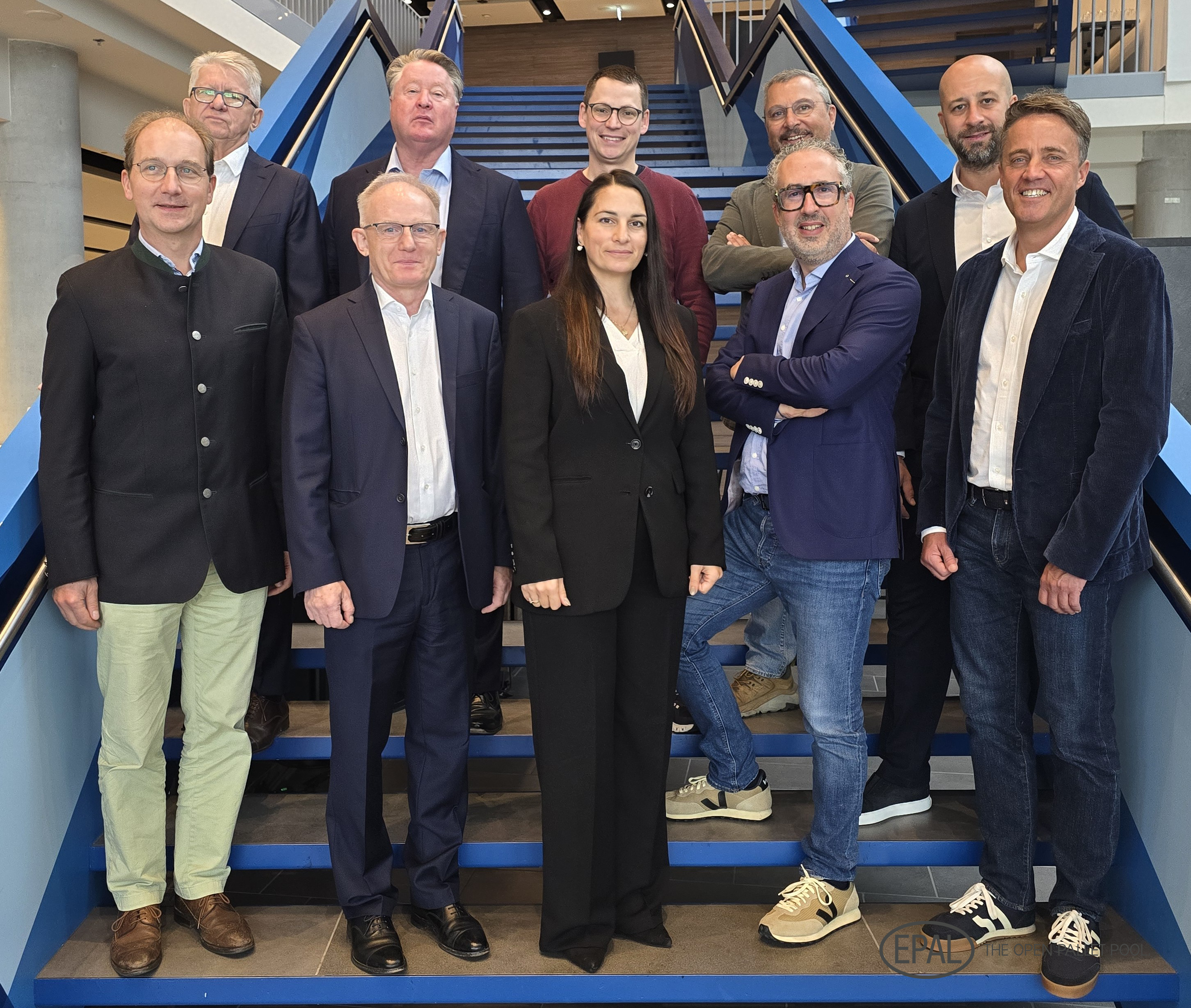EPAL Board meeting on 25 September 2025 in Munich
On 25 September 2025 in Munich, the EPAL Board discussed important topics relating to the development of the EPAL pallet pool. The focus was on adapting the technical regulations for EPAL CP pallets to the changed requirements of the chemical industry and optimising the quality of used EPAL pallets while at the same time meeting the requirements of the EU Packaging Regulation (PPWR).
The EPAL Board has decided to amend the specifications for EPAL CP pallets in order to better adapt them to the requirements of the chemical industry while also taking into account the realities of the timber industry. This decision was preceded by extensive discussions with major companies in the chemical industry. Already in April 2025, a large German chemical company announced that it will only use EPAL CP pallets from 2026 onwards. This significant step is intended to optimise the quality of the CP pallets used and the sustainability of pallet logistics.
An important aspect of CP pallet quality is standardised dimensions. In addition to the safety of logistics processes, the automation and digitalisation of logistics processes in particular require reliable specifications for CP pallets, which will be guaranteed in future by EPAL's independent quality assurance.
Dirk Hoferer, President of EPAL:
„There is no independent quality assurance for conventional CP pallets. In recent years, this has led to considerable variation in the quality and dimensions of conventional CP pallets. If CP pallets do not have standardised dimensions, this jeopardises the safety of transport and storage logistics, impairs reuse and leads to problems when CP pallets are used in fully automated conveyor systems. Such problems are avoided with quality-assured EPAL CP pallets. It is important for EPAL to take into account the current requirements of the chemical industry. After discussions with the chemical industry, the EPAL Board has therefore decided on various detailed adjustments to the technical specifications for EPAL CP pallets.“
The use and exchange of EPAL CP pallets is also intended to ensure that CP pallets used in the chemical industry will meet the requirements of the EU Packaging and Packaging Waste Regulation (PPWR) in future. EPAL will report on this topic in detail shortly.
Another important topic of the EPAL Board on 25 Sep 2025 meeting was the optimisation of the quality of used and repaired EPAL pallets while at the same time improving the sustainability of the EPAL pallet pool. The PPWR calls for the increased use of recycled material for packaging of all kinds. This also includes transport packaging such as EPAL pallets. The EPAL Board has therefore adopted new rules for the use of reclaimed components in the repair of EPAL pallets. It is important that the quality of the pallets and their suitability for long-term reuse is not impaired by the use of reclaimed components.
Peter McKenzie, EPAL Board member:
„If EPAL pallets are damaged during use, they can be repaired easily and cost-effectively. Reclaimed components from irreparably damaged EPAL pallets can also be used for this purpose. It is important that the quality of the repaired EPAL pallets is maintained. Many companies require used EPAL pallets of quality class A or B. Repairs using reclaimed components should therefore maintain the quality class by using only reclaimed components of the same quality. Users can easily and reliably identify the quality of used EPAL pallets, as EPAL does not colour its pallets.“
Other important topics of the Board meeting were the election of the Vice-Presidents of EPAL and the scheduling of the anniversary conference to mark EPAL's 35th birthday in 2026. EPAL will report on this separately.
The next EPAL Board meeting will take place on 04 December 2025 in Amsterdam.

